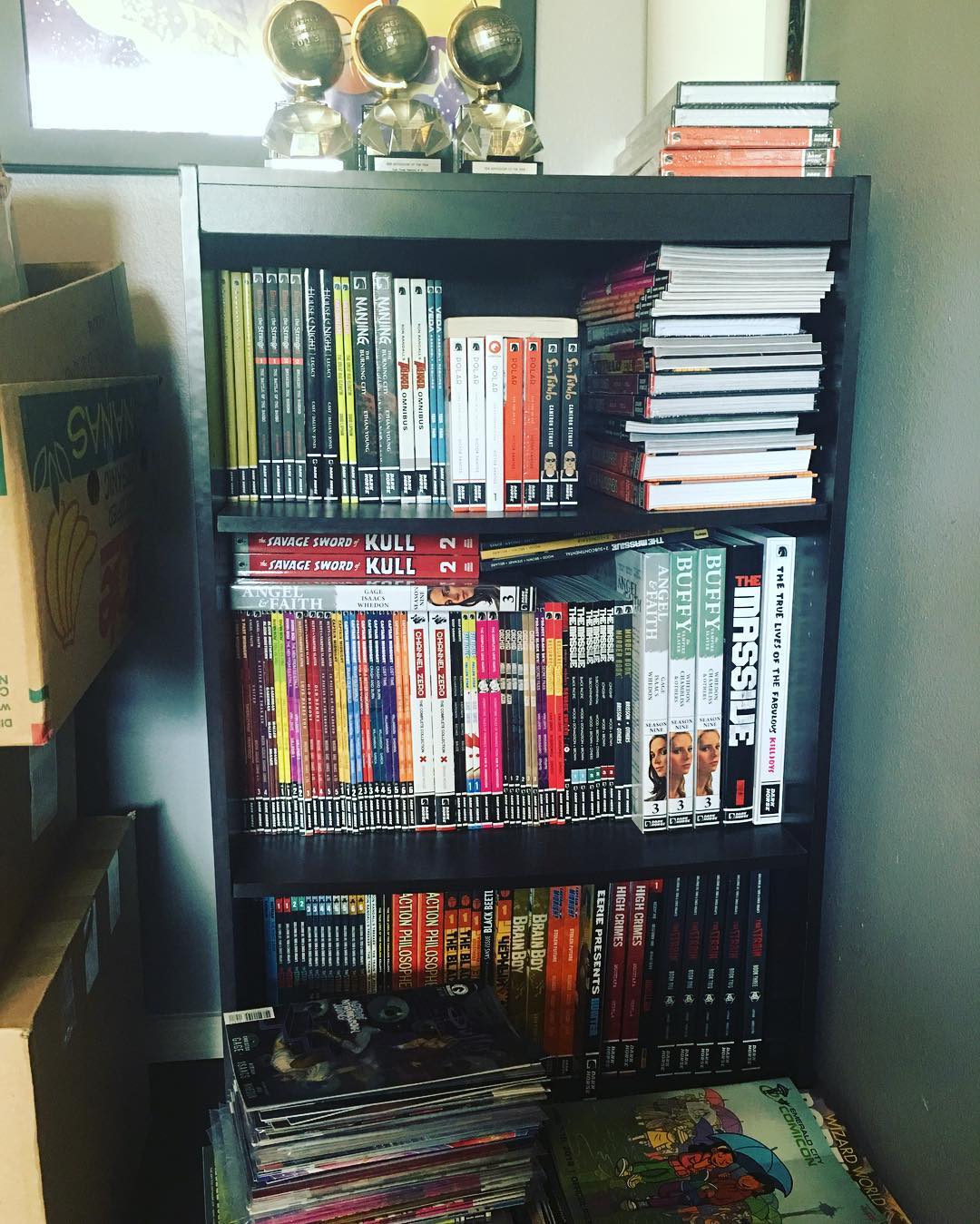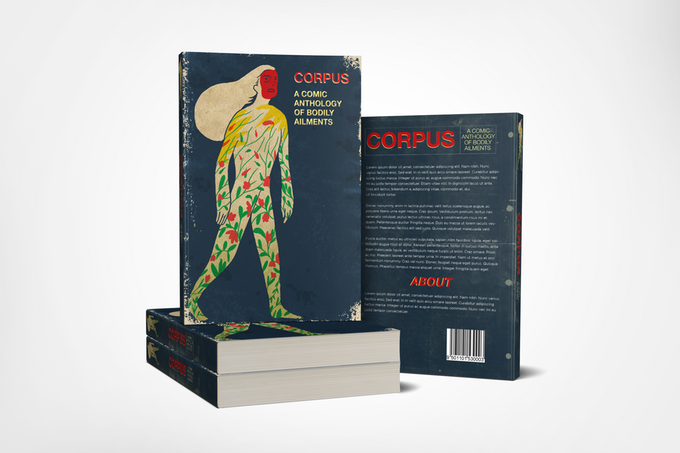I’m the type of editor and writer that loves reading about writing. Maybe it’s all the role-playing video games I played growing up—it just seems like reading about writing is a great way to level up my skills. Practice is the best method for improving as a writer or editor, but I do think absorbing as much info as possible is a close second.
In that vein, and because I pay too much attention to my own productivity, I decided to start a newsletter.
One day, it will have a catchy name. But for now, just know that you’re signing up for (roughly) monthly information about writing, editing, and publishing from someone with a decade of experience in journalism, comics publishing, and marketing.
The first installment went out last week and you can read it here or simply keep scrolling.
Let the experiment begin!
Hi, I’m Jim Gibbons! Thanks for signing up for my newsletter.
Many of you probably signed up because you know my work in comics publishing as an award-winning editor. I worked at Dark Horse Comics and Stela Comics for a combined seven years and edited stacks of comics—writing a few self-published stories along the way. I currently freelance edit a handful of comics projects and write a bit too.
In my day job, I’m a content marketer. I write marketing copy and do content strategy. To build my skills in that field, I’ve signed up for newsletters, downloaded podcasts, read blogs, and clicked about a thousand “How to Get Better at [Insert Skill Here]” links. I’m the type of person who’s constantly seeking out info on how to do what I do better. If you’re here, you probably are too.Recently, I’ve read a TON of articles about Facebook and Instagram algorithm changes that are limiting the reach of social accounts for businesses—I even edited a blog about it for my boss! It got me thinking.
In comics, or in any freelance capacity, you are your business. As a freelance comic editor and writer, I’m a business. So, I decided to combine my more recent marketing knowledge with my editing experience to create a platform to reach an audience more consistently while delivering that audience something of value: insight and info on writing and editing. This newsletter is the result.
Origin story out of the way, my goal is to share whatever expertise I’ve gained about writing and editing over ten years of working as a journalist, publicist, editor, writer, and marketer. I hope it’s information that helps you become a better creator!
What Do You Want to Learn About?
This newsletter is 100 percent a work in progress. I’ve got ideas, but hey, you’re the audience. Drop me a line and let me know what questions you have! I’ll answer them in upcoming newsletters!Obvious Tip #1
When it comes to notes: Work from the most recent draft—especially if you are getting notes from an editor.I know, I know. It sounds incredibly obvious, but when you’re an editor and you’re going through a second draft making all the same grammar changes and fixing the same spelling errors, it’s time-consuming and frustrating. Not that everything you do should be about making an editor’s life easier, but editors employ people that are easier to work with. So, don’t give them extra work—give them more of a reason to keep hiring you.
Also, paying attention to editor’s marks in a track changes (in Word Docs) or suggest (Google Docs) function is like a free mini writing lesson—pay attention and you will get better. Learn your most common errors and work to remove them from your next drafts. Rinse and repeat. I don’t just say this as an editor. As a writer, I’ve learned a lot from editor’s notes. Don’t skip those learning experiences.
Some Larger Advice: Know Your Story
Here’s a quick version of some of the best advice I’ve received on pitching a comic book editor. But, prose writers, don’t ignore this. It’s key. It’s all about knowing your story.To write your story well and to sell your story, you have to know what it’s about.
Paraphrasing the advice, which I got from Dark Horse Comics editing honcho and longtime Star Wars editor Randy Stradley, I still use this as a guide for everything I write and edit.
Break down your story with a line or two on each of these areas…
- Plot: Here’s what happens in the story.
- Characters: Here’s how what happens in the plot affects or changes the characters.
- Theme: Here’s the throughline to everything that happens, what ties it all together—aka the point you’re making with the story.
I sometimes simplify them to…
- Plot: What happens?
- Characters: What’s the struggle?
- Theme: Why should the reader care?
Let’s use the movie Captain Fantastic as an example…
Plot: MAIN CHARACTER takes his children on a cross-country road trip to their mother’s funeral.
Character: What makes a good parent? MAIN CHARACTER’s philosophy for raising his children is challenged and, through interactions with his children, he begins to question it as well.
Theme: If you love someone, let them go. MAIN CHARACTER learns that he can’t protect his children forever, he can only do his best to prepare them for the world and must learn to let them go.
Basically, by breaking these down at the beginning, you’re not only providing yourself with a roadmap, but you’re giving anyone looking at your story with the intent to approve or buy it the same understanding. These lines should act as watchwords as you write. Hold each scene up to them like a lens: How does this scene work based on your theme? Does it? Does this inform the character journey or is it just plot for the sake of plot? You can omit a lot of extraneous scenes with this method as, in a perfect story, each scene will reflect your watchwords on character journey and theme while advancing the plot.
Advice in Action: My Corpus Anthology Pitch
Not that anything I write or any advice I give is infallible, but I thought seeing how I apply the above advice might be helpful. Or, at the bare minimum, it shows that I practice what I preach!I recently had a pitch accepted to the Corpus: A Comic Anthology of Bodily Ailments, which is currently being Kickstarted.
I thought it might be helpful to share an annotated version of the pitch. That way, you can see the pitch itself and some of my thought process and rationale behind what I put where and why. Hopefully, this is a helpful exercise. Let me know what you think!Thanks!
That’s it for installment #1 of this newsletter experiment. Thanks for reading! I’m aiming for monthly updates, so keep an eye on your inbox in about 30 days.If you found this useful, tell your friends to sign up using this link: http://eepurl.com/dkjssr
Till next time!
JIM
If you found that useful, don’t miss out on more advice and information like this! Sign up below!


